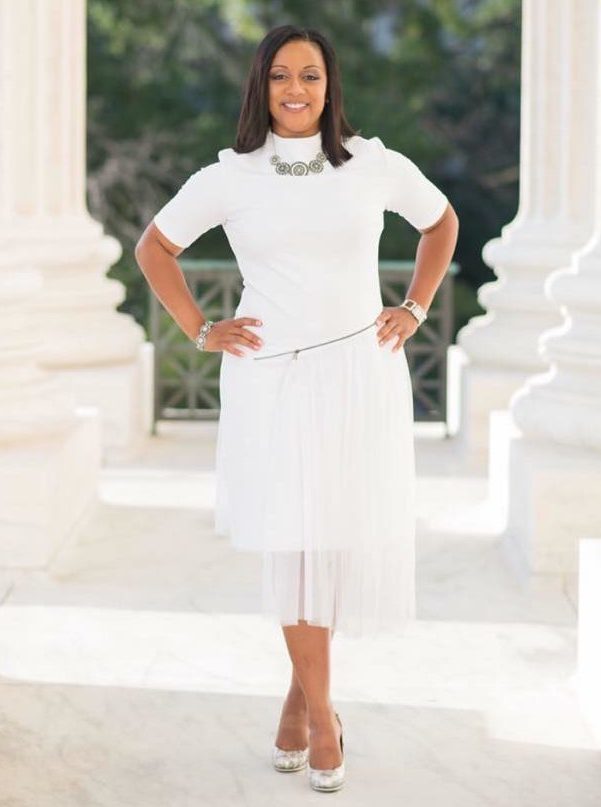Being denied one’s goal multiple times would make many people give up, but for Wearable Tech Ventures founder LaKisha Greenwade, it helped her come back stronger.
Wearable Tech Ventures is a network that connects innovators, investors and founders to develop wearable tech products, especially women and people of color.
Greenwade came up with the idea for Wearable Tech Ventures while serving as a volunteer for several civic organizations to aid the community during 2015 unrest that followed the death of Freddie Gray.
She viewed the looting and violence that some young demonstrators participated in as a chance to turn that anger into something positive by intersecting Baltimore’s fashion history with the emergence of technology.
“I saw this negative press about Baltimore youth, and I wanted to give the youth an opportunity to grow and add value to the economy,” Greenwade said.
In the next few months, Greenwade plans to expand education about wearable tech so that more people, especially young people, can enter the industry.
She plans to work with tech founders, including those who have worked with NASA, and the University of Maryland, Baltimore County (UMBC), to create original, online courses about wearable tech.
Greenwade ended up meeting Ty Hunter, Beyonce’s stylist, who had developed his own wearable tech product, in New York and pitched her concept to him. She organized a public discussion in Baltimore with him to gain feedback on the idea and decided to pursue the company.
Greenwade had no prior experience with tech, so she partnered with professors from the Maryland Institute College of Art (MICA), local small business owners and experts in health to launch her company in 2016.
Though Greenwade wanted to give back to the Baltimore community, the city didn’t accept her vision with open arms at first. She said her biggest venue for support when she first launched was South by Southwest, an annual collection of conferences and festivals held in Austin, Texas.
She spoke at the event three times before finally making progress on building her network in the Charm City.
“I didn’t receive support from Baltimore to start,” Greenwade said. “Baltimore was late catching on, and Baltimore really didn’t appreciate me for what I was making even though I was trying to rebrand the city and help out with opportunities for the youth. However, Baltimore’s catching on.”
She strived to make her mark in Baltimore, but couldn’t attain investments. This forced her to self-fund through the early stages of her company.
“I went through so much rejection,” Greenwade said. “Now, we do have corporate banking and interested investors from a number of different fields. My goal is to make sure none of these founders go through what I went through. Let’s stop talking about it and be about it, especially with something that is new because tech is going to bring things that are new.”
Greenwade defines wearable tech as “a unique industry that encompasses devices that can be used on the body or incorporated with the body to enhance productivity.”
The company began under the name Glam Tech, but Greenwade soon recognized that fashion tech was just a small segment of the broader wearable tech industry. She saw that there was still a massive market to attack, so she rebranded the company this year to increase partnership opportunities.
“We bridge the gap between corporations, investors, angel investors, government institutions, founders and aspiring founders to come together and develop and promote wearable technology,” Greenwade said.
Despite the rebranding, Greenwade said that the key to wearable tech is a balance of fashion and the helpfulness of the technology. She consults with tech founders and fashion experts from New York and California to Europe and South Africa.
Greenwade organized a global wearables tech summit for founders to display their products and pitch their concepts to attendees set for September of 2020.
When it comes to the long haul, Greenwade said she aims to assist 100 founders by 2030.
“We’re actively working with companies in the tech community to develop and promote, so come on and support a founder,” she said.







